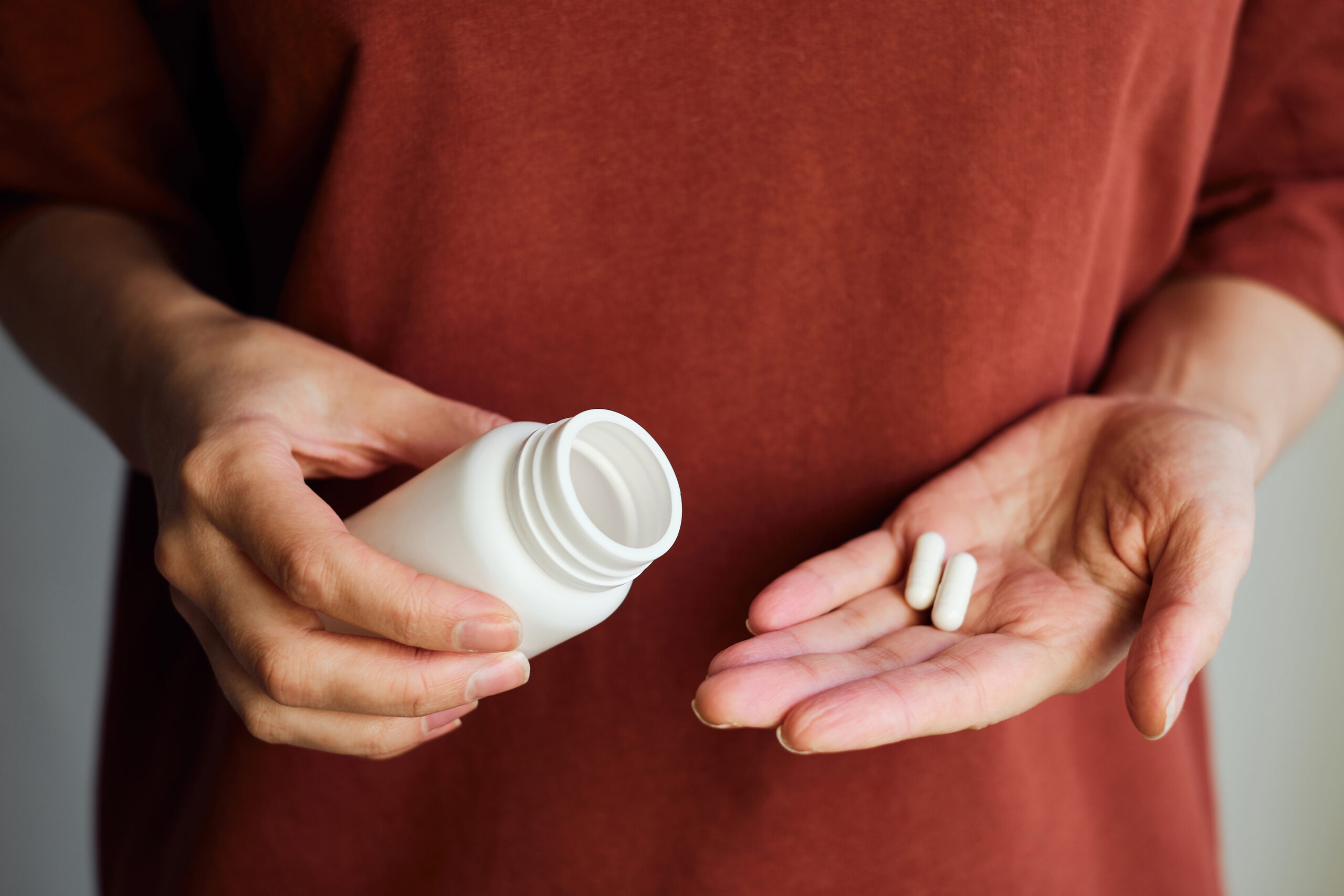As we age, changes in our brain function can become a notable part of life. Creatine, traditionally known for its role in enhancing physical performance, also shows promising benefits for brain health. Its ability to support cognitive functions like memory and problem-solving makes it a valuable supplement in this stage of life.
Particularly through perimenopause and post-menopause, women can experience shifts in cognitive abilities due to hormonal changes, affecting mood, decision-making, and memory. While individual experiences with menopause vary, the phase is often associated with an increased risk of mental health conditions like depression and anxiety. The risk of developing Alzheimer’s disease tends to increase with age as well, especially after 60.
Recognizing the importance of brain health is key to maintaining a high quality of life during these transformative years. A well-functioning brain is essential not only for sound decision-making and maintaining a positive mood but also for adapting effectively to new challenges. Research indicates that supplementing with creatine can be a supportive strategy in enhancing brain health, offering women over 40 a potential pathway to preserve and improve cognitive abilities as they age.
While you might think of creatine for physical performance, research shows creatine offers substantial support for your brain as well.
The topic of brain health has been near and dear to me following my son Grant’s traumatic brain injury 12 years ago. Research backs up what I learned then: creatine can promote recovery in such cases by supporting cellular health and reducing inflammation.1
5 Ways Creatine Can Support Your Brain Health
1. Creatine Supplies Your Brain With Energy
Your brain requires considerable energy, using about 20% of your body’s total energy output.2 This energy is stored in adenosine triphosphate (ATP), essential for cellular function. Creatine plays a vital role in maintaining ATP levels, acting as a reserve for quick energy replenishment, particularly during intense activities.3
Within those brain cells, tiny parts called mitochondria act as powerhouses, producing the energy your cells need. Creatine helps your mitochondria work more efficiently.4 When your mitochondria work better, they produce more energy, which benefits your brain.
Researchers have looked at how this energy support can help in specific decisions, such as in physical activity that requires quick decision-making. In those situations, mental fatigue can impair performance. Creatine may help reduce mental fatigue, as seen in one study with rugby players. Creatine improved the performance of the athletes in this study when they were sleep-deprived.5
2. Creatine Helps Balance Blood-Sugar Levels
Your brain needs a consistent and balanced supply of glucose for energy. When your blood-sugar levels are well-regulated, your brain can efficiently carry out its functions, such as memory retention and decision-making. Keeping your blood-sugar levels stable ensures a constant energy supply for your brain.6
When blood-sugar levels fall out of balance, you’re more prone to problems like brain fog, making it difficult to concentrate and think clearly. Elevated blood-sugar levels can also cause more harmful issues like insulin resistance, where cells “resist” the signal of this hormone.
As a result, your blood-sugar levels can stay high when they shouldn’t be, and your pancreas has to produce more insulin to keep it in control. High blood sugar and insulin levels can lead to problems including cognitive decline and an increased risk of dementia.7
Studies show that creatine supplements can assist in maintaining balanced blood-sugar levels. In one 12-week study, individuals who combined creatine with exercise showed better control over their blood sugar than those who only exercised.8
3. Creatine Can Boost Memory and Focus
The mental boost from creatine can also come in handy when you need to stay alert and focused. Research suggests that taking creatine supplements can lead to cognitive improvements like better memory and mental clarity.
In one analysis of six studies involving 281 participants, researchers found that creatine could enhance short-term memory and reasoning abilities. Older people and those dealing with stress benefited the most from creatine supplementation.9
Another review of eight studies showed improved memory in participants ages 66 to 76 who took creatine, compared to those who received a placebo.10
4. Creatine Can Protect Your Brain From Harm
Your body produces tiny molecules called free radicals as part of its regular activities. Too many of them can damage our cells, which can cause oxidative stress.
Over time, these free radicals can contribute to harmful inflammation and the formation of abnormal proteins in the brain that are hallmarks of brain diseases like dementia. Studies indicate that creatine’s brain-protective abilities may reduce the risk of Alzheimer’s.11
Creatine helps reduce the damage caused by these molecules. It acts as an antioxidant, neutralizing the harmful effects of free radicals.12 Taking creatine can help keep your brain cells healthier by lowering oxidative stress.
5. Creatine Can Support a Balanced Mood
Your brain relies on chemical messengers called neurotransmitters to send messages between brain cells. Creatine helps dopamine and serotonin function better.13
These neurotransmitters are crucial in controlling mood, motivation, and brain function. When creatine supports these neurotransmitters, it helps maintain a healthy balance in brain communication, positively impacting mood.
Creatine’s mood support is beneficial for people experiencing mood disorders or imbalances like anxiety. In one study, creatine supplementation enhanced the antidepressant effects in women with depression.14
Get the Brain-Boosting Benefits of Creatine
Creatine might work even better for women than men in some situations. One reason is that women typically have 70-80% less naturally occurring creatine than men. Supplementing can help restore those levels and help you get all the benefits of this nutrient. Optimal creatine can better support energy levels, maintain a balanced mood, and enhance how your brain thinks, learns, remembers, and makes decisions.15
SHEatine is the ultimate creatine supplement designed with YOU in mind—made for women, by women. Our unique formula combines a potent form of this brain-supporting nutrient (as creatine HCl) with taurine and magnesium to support your powerful aging journey to being confident, capable, and unstoppable.*
References:
- Ainsley Dean PJ, Arikan G, Opitz B, Sterr A. Potential for use of creatine supplementation following mild traumatic brain injury. Concussion. 2017 Mar 21;2(2):CNC34. doi: 10.2217/cnc-2016-0016. PMID: 30202575; PMCID: PMC6094347.
- Herculano-Houzel S. Scaling of brain metabolism with a fixed energy budget per neuron: implications for neuronal activity, plasticity and evolution. PLoS One. 2011 Mar 1;6(3):e17514. doi: 10.1371/journal.pone.0017514. PMID: 21390261; PMCID: PMC3046985.
- Ainsley Dean PJ, Arikan G, Opitz B, Sterr A. Potential for use of creatine supplementation following mild traumatic brain injury. Concussion. 2017 Mar 21;2(2):CNC34. doi: 10.2217/cnc-2016-0016. PMID: 30202575; PMCID: PMC6094347.
- Marshall RP, Droste JN, Giessing J, Kreider RB. Role of Creatine Supplementation in Conditions Involving Mitochondrial Dysfunction: A Narrative Review. Nutrients. 2022 Jan 26;14(3):529. doi: 10.3390/nu14030529. PMID: 35276888; PMCID: PMC8838971.
- Cook CJ, Crewther BT, Kilduff LP, Drawer S, Gaviglio CM. Skill execution and sleep deprivation: effects of acute caffeine or creatine supplementation – a randomized placebo-controlled trial. J Int Soc Sports Nutr. 2011 Feb 16;8:2. doi: 10.1186/1550-2783-8-2. PMID: 21324203; PMCID: PMC3049131.
- Healthline: 10 Health and Performance Benefits of Creatine
- Healthline: Hyperinsulinemia: Symptoms, Treatments, and Diet
- Gualano B, Novaes RB, Artioli GG, Freire TO, Coelho DF, Scagliusi FB, Rogeri PS, Roschel H, Ugrinowitsch C, Lancha AH Jr. Effects of creatine supplementation on glucose tolerance and insulin sensitivity in sedentary healthy males undergoing aerobic training. Amino Acids. 2008 Feb;34(2):245-50. doi: 10.1007/s00726-007-0508-1. Epub 2007 Mar 30. PMID: 17396216.
- Avgerinos KI, Spyrou N, Bougioukas KI, Kapogiannis D. Effects of creatine supplementation on cognitive function of healthy individuals: A systematic review of randomized controlled trials. Exp Gerontol. 2018 Jul 15;108:166-173. doi: 10.1016/j.exger.2018.04.013. Epub 2018 Apr 25. PMID: 29704637; PMCID: PMC6093191
- Prokopidis K, Giannos P, Triantafyllidis KK, Kechagias KS, Forbes SC, Candow DG. Effects of creatine supplementation on memory in healthy individuals: a systematic review and meta-analysis of randomized controlled trials. Nutr Rev. 2023 Mar 10;81(4):416-427. doi: 10.1093/nutrit/nuac064. PMID: 35984306; PMCID: PMC9999677.
- Roschel H, Gualano B, Ostojic SM, Rawson ES. Creatine Supplementation and Brain Health. Nutrients. 2021 Feb 10;13(2):586. doi: 10.3390/nu13020586. PMID: 33578876; PMCID: PMC7916590.
- Arazi H, Eghbali E, Suzuki K. Creatine Supplementation, Physical Exercise and Oxidative Stress Markers: A Review of the Mechanisms and Effectiveness. Nutrients. 2021 Mar 6;13(3):869. doi: 10.3390/nu13030869. PMID: 33800880; PMCID: PMC8000194.
- Allen PJ. Creatine metabolism and psychiatric disorders: Does creatine supplementation have therapeutic value? Neurosci Biobehav Rev. 2012 May;36(5):1442-62. doi: 10.1016/j.neubiorev.2012.03.005. Epub 2012 Mar 24. PMID: 22465051; PMCID: PMC3340488.
- Lyoo IK, Yoon S, Kim TS, Hwang J, Kim JE, Won W, Bae S, Renshaw PF. A randomized, double-blind placebo-controlled trial of oral creatine monohydrate augmentation for enhanced response to a selective serotonin reuptake inhibitor in women with major depressive disorder. Am J Psychiatry. 2012 Sep;169(9):937-945. doi: 10.1176/appi.ajp.2012.12010009. PMID: 22864465; PMCID: PMC4624319.
- Smith-Ryan AE, Cabre HE, Eckerson JM, Candow DG. Creatine Supplementation in Women’s Health: A Lifespan Perspective. Nutrients. 2021 Mar 8;13(3):877. doi: 10.3390/nu13030877. PMID: 33800439; PMCID: PMC7998865.
The views in this blog by JJ Virgin should never be used as a substitute for professional medical advice. Please work with a healthcare practitioner concerning any medical problem or concern. The information here is not intended to diagnose, treat, or prevent any disease or condition. Statements contained here have not been evaluated by the Food and Drug Administration.
*These statements have not been evaluated by the Food and Drug Administration. This product is not intended to diagnose, treat, cure, or prevent any disease.







